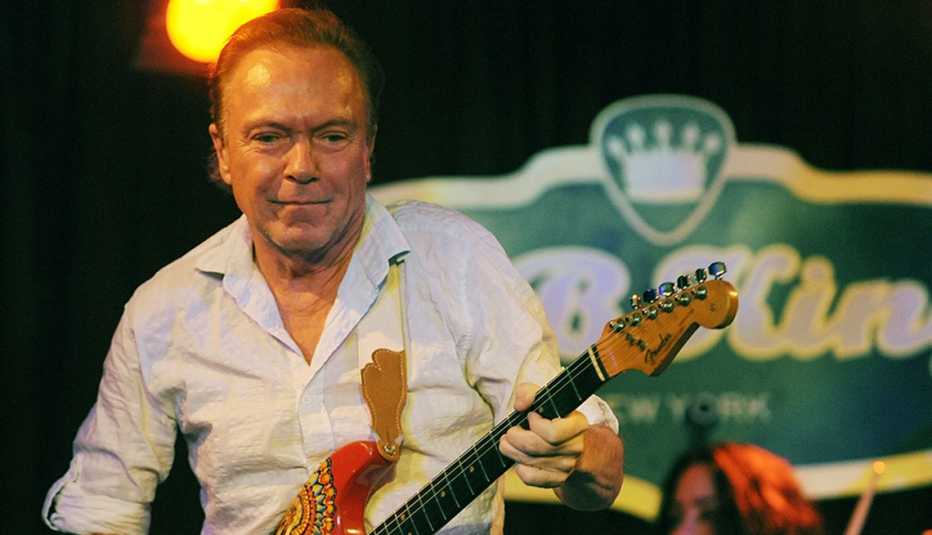AARP Hearing Center


David Cassidy, the singer who said shortly before his death at 67 in November that his onstage collapse in February 2017 was caused by Alzheimer’s disease, actually died of organ failure related to alcoholism, according to a new documentary. David Cassidy: The Last Session debuts Monday on A&E. In the poignant two-hour film, Cassidy — whose mother had Alzheimer's — confesses, “I did it to myself, to cover up the sadness and the emptiness. There is no sign of me having dementia at this stage of my life. It was complete alcohol poisoning. And the fact is, I lied about my drinking.”
Problem drinking is more than a show business affliction. Cassidy's tragic story is about the need to maintain a public image in that business — but his generation faces an increased risk of alcoholism. According to Being Sober author Harry Haroutunian, 17 percent of Americans over 60 have alcohol or drug problems, compared with 10 percent of Americans overall. A recent study in JAMA Psychiatry found that high-risk drinking for those over 64 was at least double that of the general population, and the number is increasing. Between 2001 and 2013, there was a 107 percent increase in the number of adults 65 and over with alcohol use disorder.
Cassidy’s case was also related to neglect by his famous father, actor-singer Jack Cassidy, who also was an alcoholic, according to his son. He says in the documentary that he once saw Jack down 15 Scotch and sodas. In his 1994 memoir, C’mon, Get Happy, Cassidy wrote that Jack, whose career flagged after he spurned the role of Ted Baxter on The Mary Tyler Moore Show, tried to improve his job opportunities by seducing Cole Porter. Jack was hospitalized with bipolar illness and died after a night of drinking, when his cigarette ignited his Naugahyde couch.
Jack had left Cassidy's mother for Shirley Jones, who played the young heartthrob's mother on TV’s The Partridge Family. During the course of the sitcom, from 1970 to 1974, Cassidy earned $8 million. By 1986, he said he had less than a thousand left and found it impossible to be taken seriously as an actor or singer after being typecast as a teen idol who received 25,000 fans’ love letters a week.



































































More From AARP
Willie Nelson Knows the Secret to a Life Well Lived
For 60 years, the country music outlaw set the bar for being true to yourselfWatch CNN's '1968' and Relive a Tumultuous Year
Tom Hanks mixes history and pop culture into an exciting four-part series